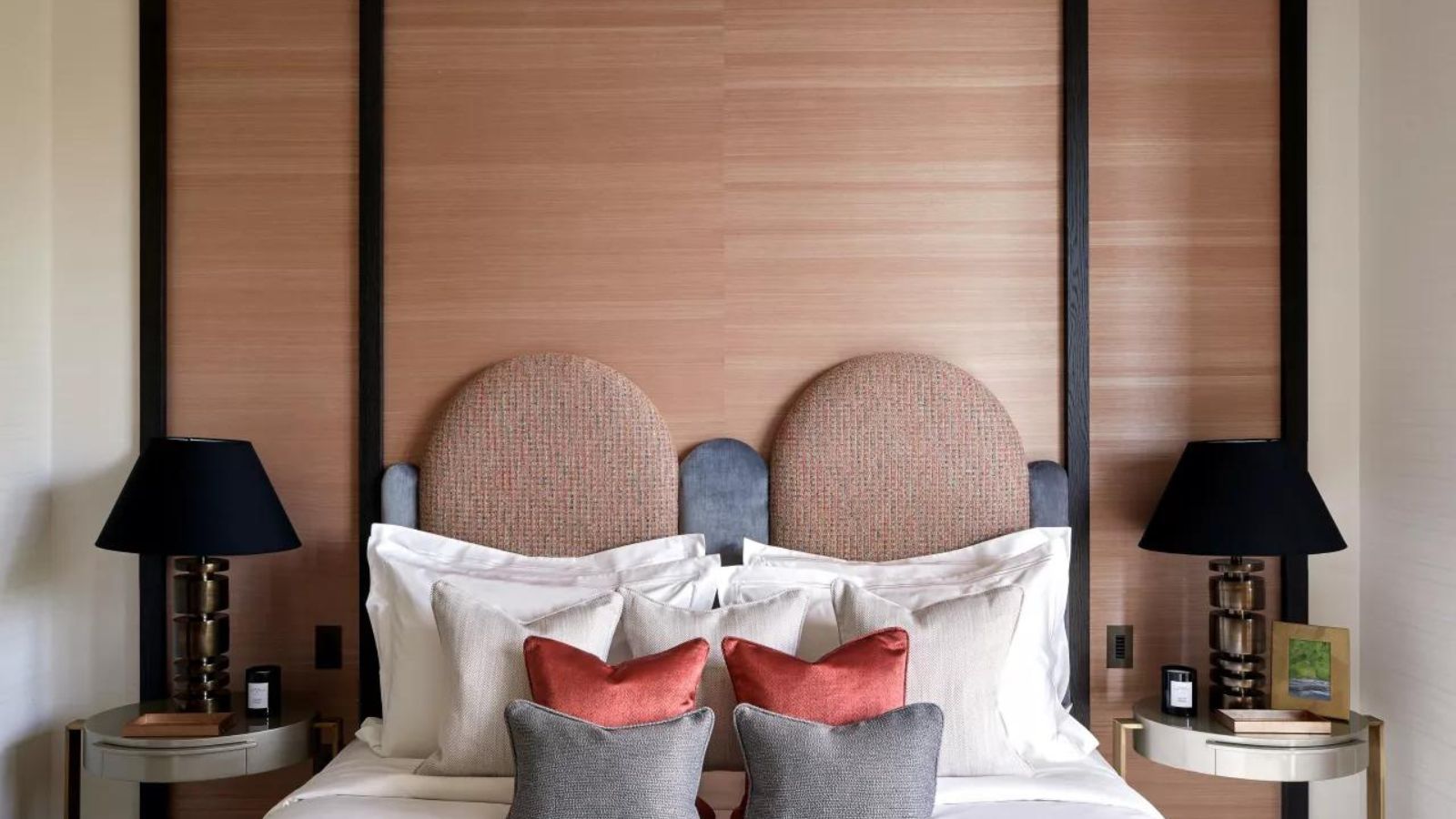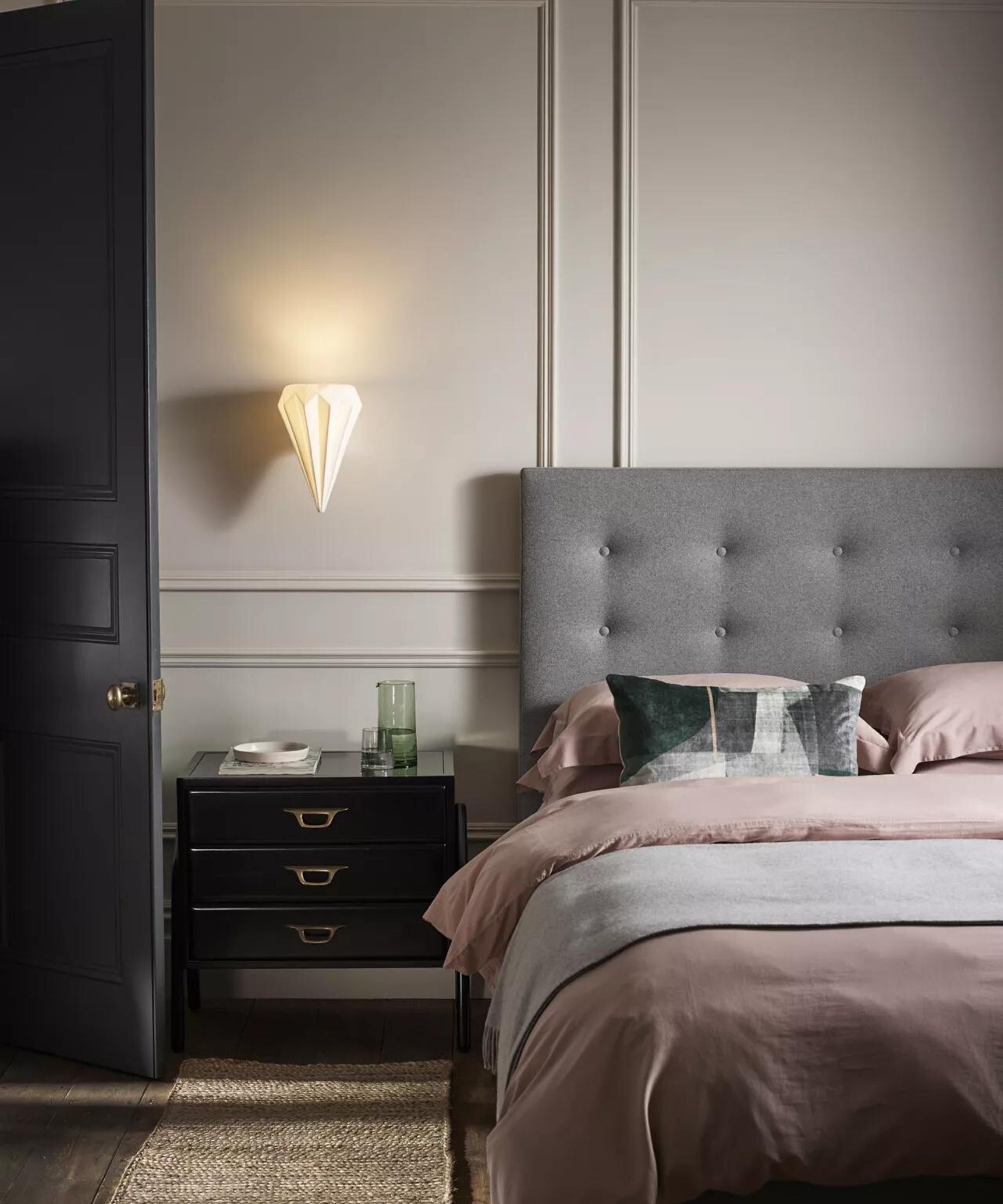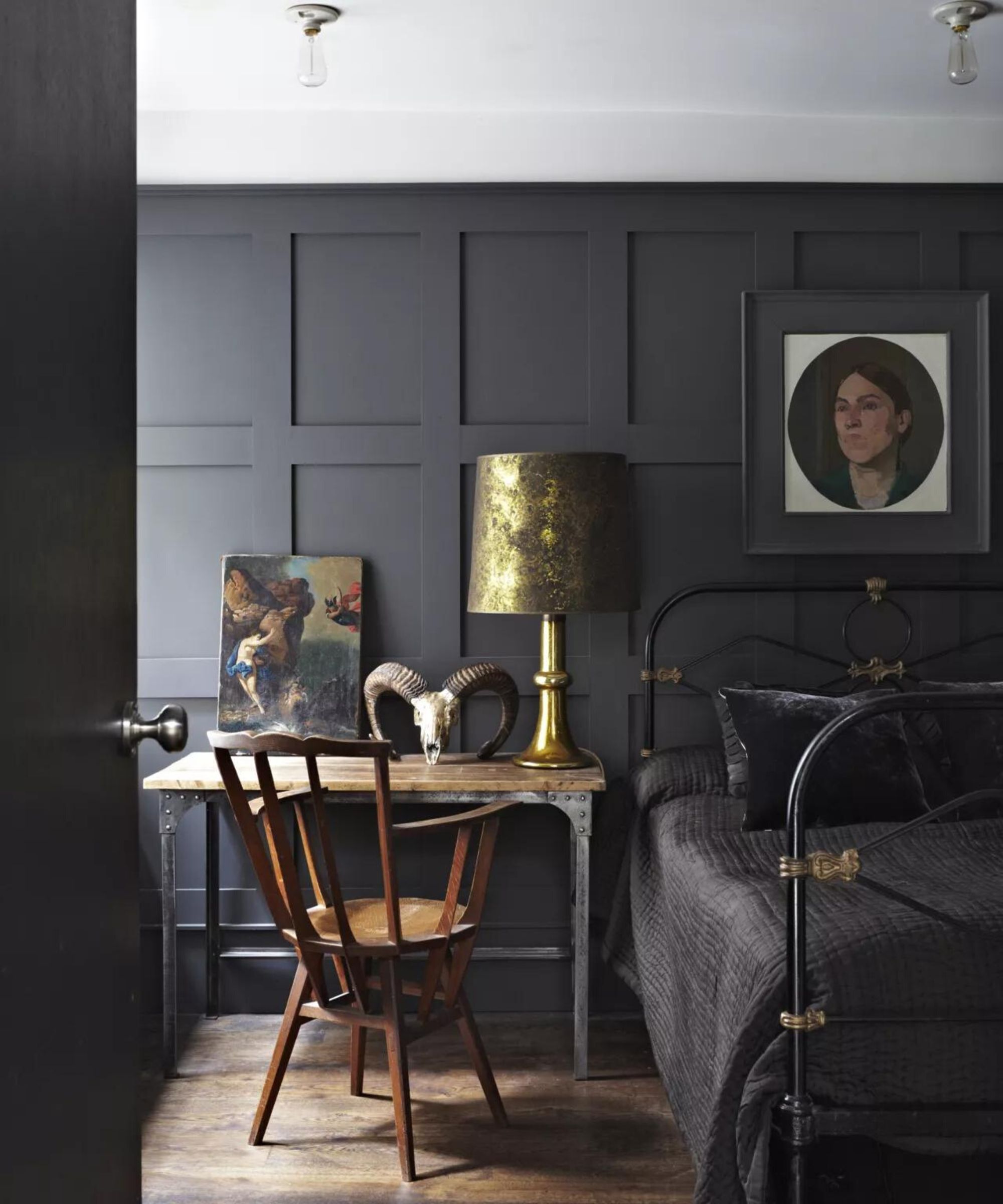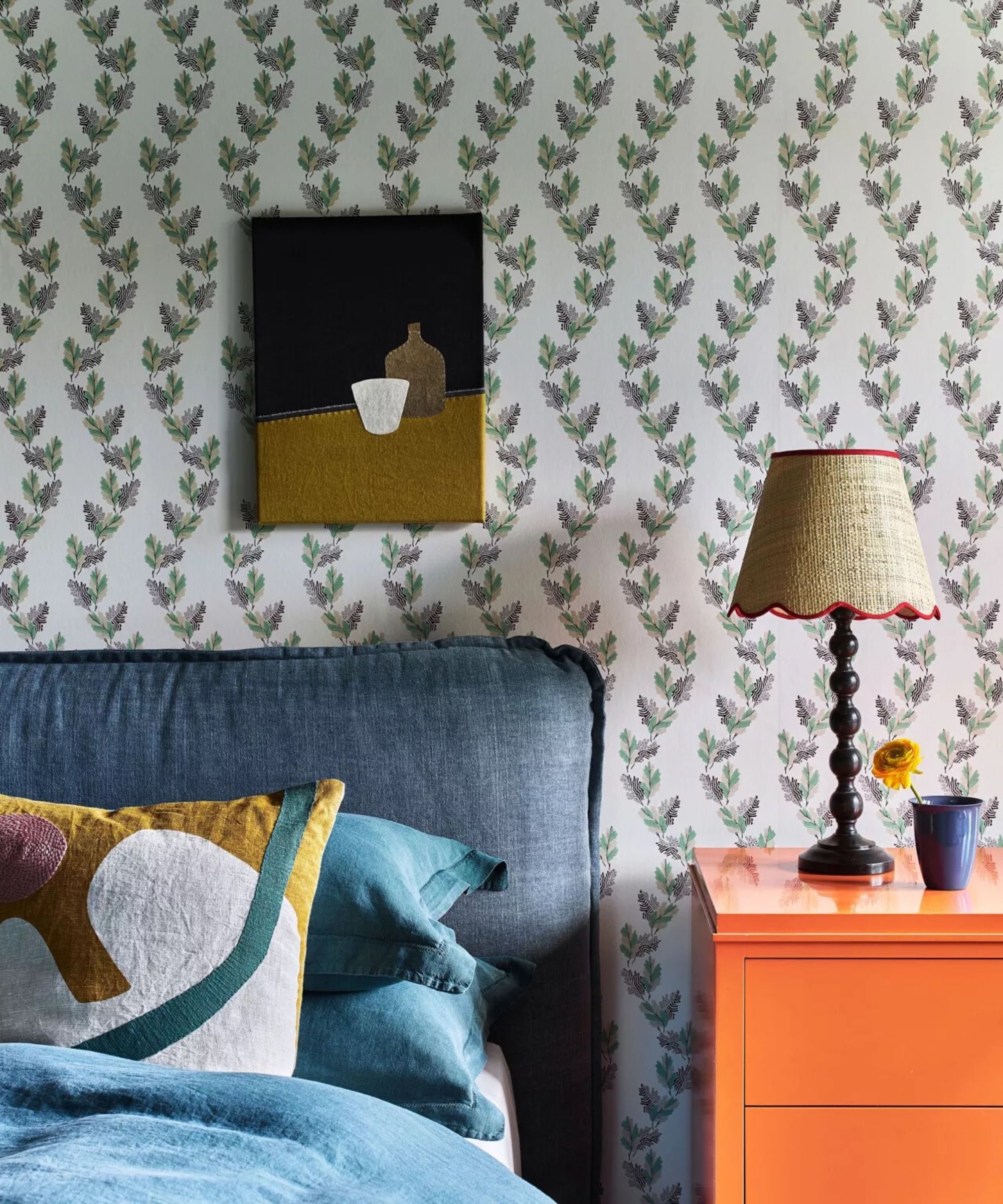Why is a headboard important in feng shui? Experts share their advice
Avoid a feng shui faux pas and select the right headboard with this comprehensive guide


Design expertise in your inbox – from inspiring decorating ideas and beautiful celebrity homes to practical gardening advice and shopping round-ups.
You are now subscribed
Your newsletter sign-up was successful
Want to add more newsletters?

Twice a week
Homes&Gardens
The ultimate interior design resource from the world's leading experts - discover inspiring decorating ideas, color scheming know-how, garden inspiration and shopping expertise.

Once a week
In The Loop from Next In Design
Members of the Next in Design Circle will receive In the Loop, our weekly email filled with trade news, names to know and spotlight moments. Together we’re building a brighter design future.

Twice a week
Cucina
Whether you’re passionate about hosting exquisite dinners, experimenting with culinary trends, or perfecting your kitchen's design with timeless elegance and innovative functionality, this newsletter is here to inspire
Using feng shui in a home means that the smallest details can make or break a space.
In bedroom feng shui, something as simple as a bed’s headboard is thought to have a drastic impact on energy flows and positive manifestation and the wrong one can lead to negative energies or insufficient support. It is important, too, to have the optimal feng shui bedroom layout to increase any positive effects.
And if you’re wondering about the meaning of feng shui, it is a belief system that is used in interior design to place furniture in relation to the flow of chi energy.
So what should you be looking for, and what should you avoid when it comes to choosing a headboard. Below, the experts share all you need to know.
Why is a headboard important in feng shui?
The most important thing to pay attention when you’re focusing on the feng shui of your bedroom is the bed. ‘That’s because it is the main purpose of the room,’ explains Anjie Cho, interior architect and feng shui designer. ‘Feng shui is a lot of common sense and mundane aspects in conjunction with meaning and how that’s connected to metaphor and other energetic aspects of your life.’
‘You want to have a sturdy headboard that is fastened to the bed because it represents your support. It’s like your back – you want to make sure that the bed has a bed frame and a headboard.’
Feng shui expert Johanna Augusta agrees. ‘Headboards are an important consideration in feng shui, as they can help promote good energy flow in the bedroom.’
Design expertise in your inbox – from inspiring decorating ideas and beautiful celebrity homes to practical gardening advice and shopping round-ups.
Find the right placement

While feng shui bed placement is often discussed in detail, the ideal placement of the headboard itself is contested. Anjie believes that ‘you want the headboard up against the wall’ in order to fortify its supporting qualities, whereas Johanna suggests leaving space between the headboard and the wall.
‘It is said that a headboard should never be placed directly against a wall, as this can block the flow of energy,’ she says. ‘Instead, it is best to position the headboard so that it is slightly away from the wall. This allows energy to flow more freely around the room.’
The placement of your feng shui headboard could come down to personal preference. Whether you are looking to feng shui for added support in your life, or want to increase positive energies could be a factor in deciding your headboard’s placement. Alternatively, if you have a small bedroom, placing the bed against the wall may be more practical in the space you have.
One thing all Feng Shui experts agree on is that you should not place a bed under a window as this could lead to restless sleep and feelings of insecurity.
Make sure to avoid these headboard styles

Besides avoiding broken or unsecure headboards, there are a few other things to think about.
‘Headboards with sharp angles or edges should also be avoided, as they can create negative energy in the room,’ explains Johanna. Sharp edges are believed to conduct negative qi energy into the space which should be avoided in the bedroom.
‘It is also important to avoid headboards that are too ornate or 'busy',’ she adds.
Anjie advises, ‘You don’t want anything that is perforated or with bars as things can fall through in your life and relationships – this is because your support is not as steady and firm.’
The best feng shui headboards

There are a few other – more aesthetic – considerations to take into account when shopping for a good feng shui headboard.
‘When choosing a headboard, it is important to consider the material, color, and shape. Headboards made of wood or metal are said to be good choices, as they allow energy to move more freely,’ says Johanna. They can also help you create a Feng Shui bedroom for good luck.
Chose the right feng shui headboard color
If you’re following feng shui principles, it is recommended that you choose colors carefully. Consider continuing feng shui bedroom colors such as neutrals, greens, or purples in your headboard to cultivate calming, grounded energy.
But there are alternatives. ‘Headboards in softer colors such as pink or blue are also said to be good choices, as they promote a sense of calm and relaxation,’ explains Johanna.
Select a rounded shape
Much like colors, shapes are also said to have different meanings in feng shui. Harsh shapes with pointed or sharp corners and edges may give off sharp, energetic energies that are seen as negative in the relaxing space of the bedroom. Instead, opt for curved or rounded headboards as they are believed to encourage the flow of positive energy around the room, Johanna recommends.
Opt for a fabric headboard
Expert advice suggests that upholstered headboards and solid headboards are ideal for a feng shui headboard. The soft edges and warmth of the material allows for a solid support whilst cushioning negative energies and encouraging a better, more restful, night’s sleep.
Which direction should my headboard face in feng shui?
The headboard in feng shui should face south or west. This allows your toes to point towards the north or east whilst you are sleeping. This position follows the rules of good feng shui furniture placement and is associated with prosperity and happiness – so you can wake up on the right side of the bed every morning.

Chiana is Homes & Gardens’ kitchen appliances editor. With a lifelong passion for cooking and baking, she grew up experimenting in the kitchen every weekend with her baking-extraordinaire Mom, and has developed a great understanding of how tools and appliances can make or break your ideal relaxing kitchen routine.